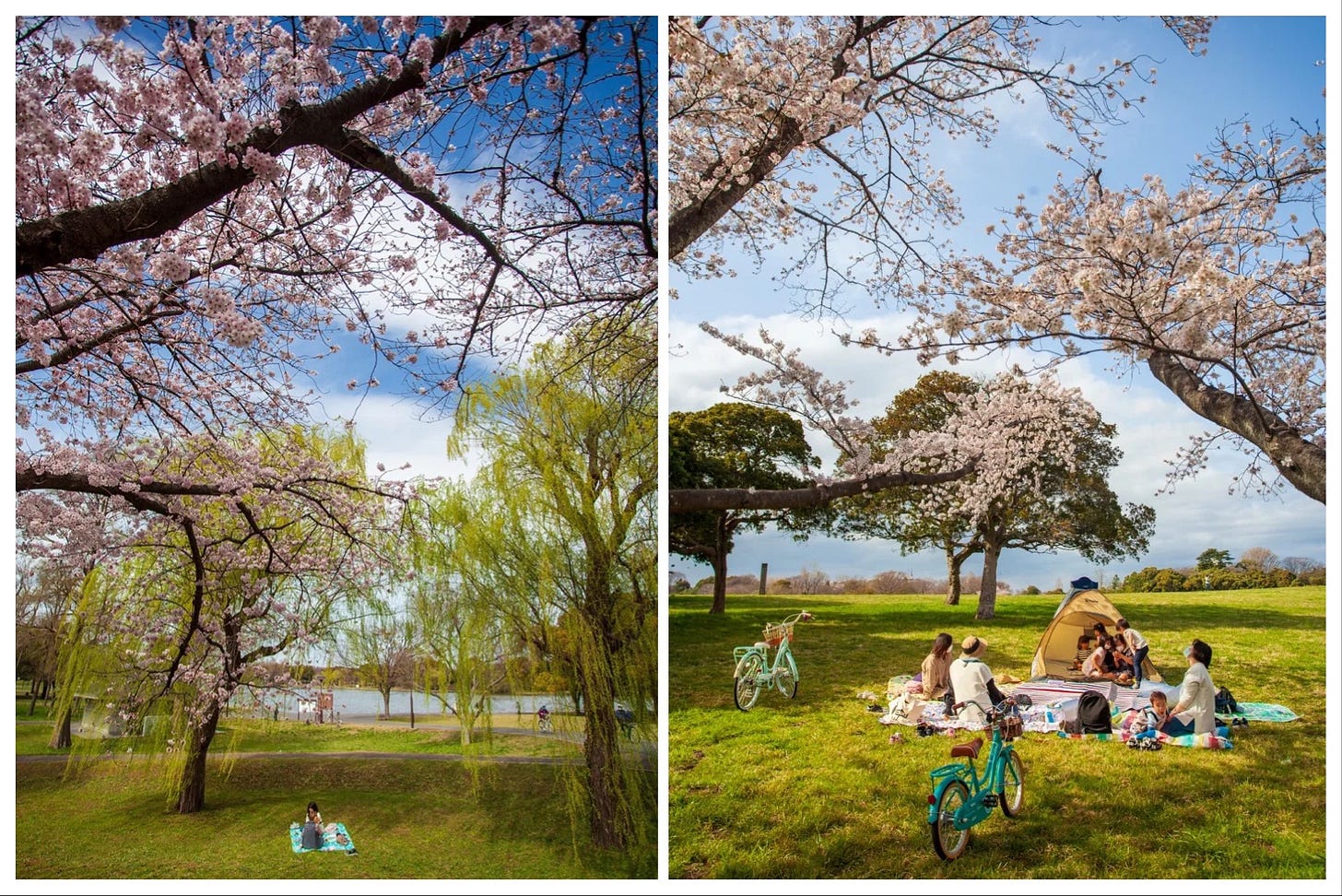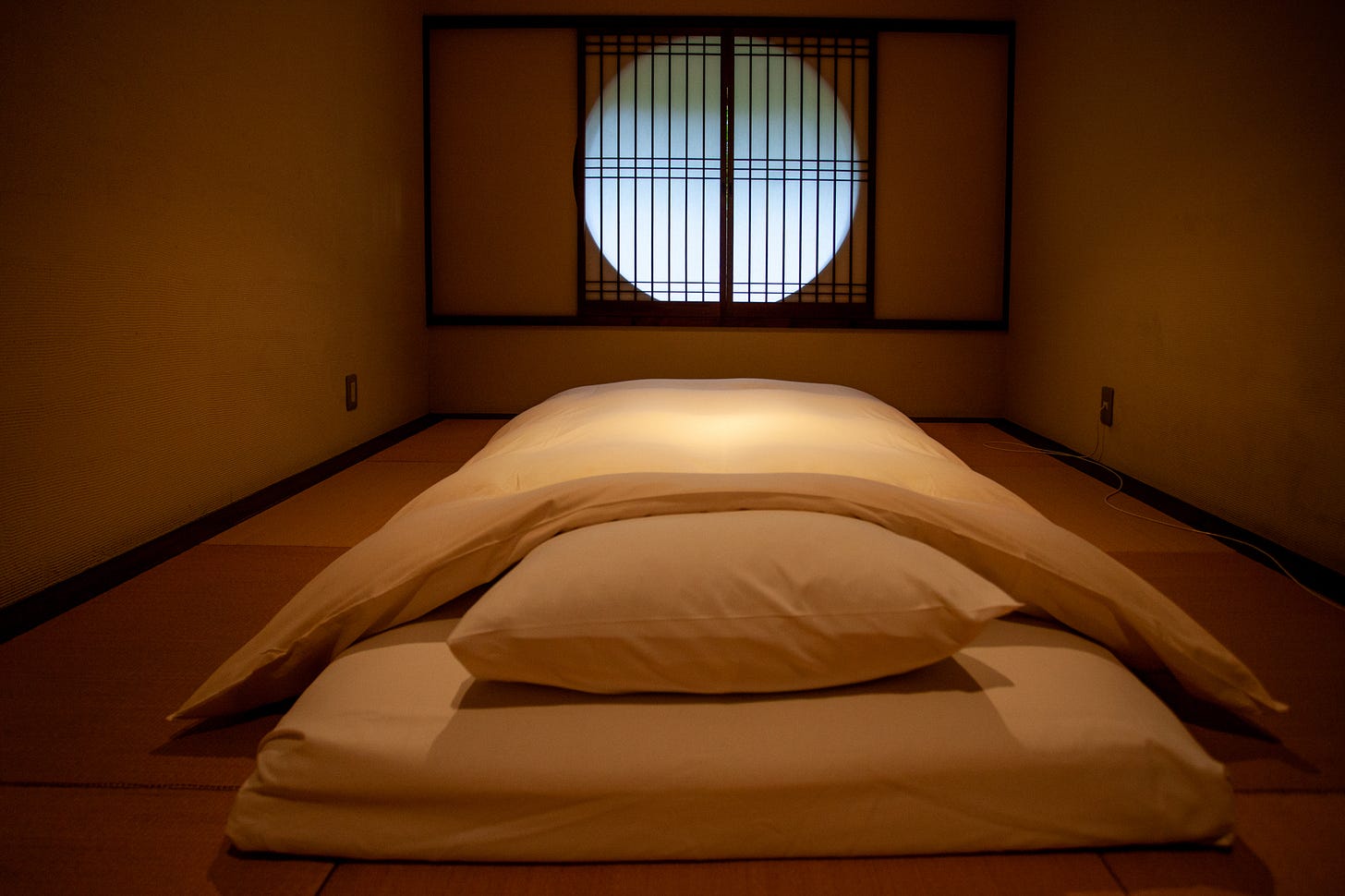Japan Trip Planning Q&A: Part II - Accommodation
A series of posts on Japan trip planning, Part II: Accommodation—answered in ten questions.
Good afternoon,
After the first post in the Japan Trip Planning Q&A series, exclusive to monthly and annual subscribers, focusing on transportation (trains), which may have left some of you feeling overwhelmed—either by how unnecessarily complex the system is or how complex I made it seem—I’m back with the second post.
This time, I’m covering a less complicated and more enjoyable topic: accommodation, including facilities unique to Japan, camping options, mountain huts, booking tips, and some of my favorites.
Like the first one, this post, which aims to provide an overview, as specifics vary greatly by facility, will inevitably lead to new questions. If you reach out, I’ll do my best to help with the details.
Before we start, here’s a quick update on the beloved Sakura season, which is just around the corner. According to the latest forecast from the Japan Meteorological Agency, Tokyo is expected to reach full bloom around April 2nd, while Kyoto will follow about five days later, around April 7th. Since I plan to cover the Sakura season in the March edition of Letters from Japan, the monthly letter may be posted a little later than usual.
Now, on to our topic. Let’s start with an accommodation-related term that seems to have a bit of a mystery to it.
#1 What is a ryokan, and is it worth it?
The word ryokan (旅館), which you might have encountered while planning your trip to Japan, means a traditional Japanese inn. More literally, the kanji characters that make up the word mean "travel" (旅) and "building" (館).
A ryokan stay is an experience in itself, as it is not merely a place to stay but a cultural experience centered around the theme of omotenashi—Japanese hospitality, which has its roots in, and one of its most exquisite representations in, the tea ceremony. The most common features of a ryokan stay are tatami-matted rooms with Japanese-style bedding, a kaiseki dinner followed by a traditional Japanese breakfast, and, in most cases, an onsen, given the country’s geothermal features. In other words, a ryokan stay offers the chance to experience some of the defining elements of Japanese culture in one place.



